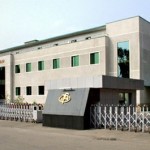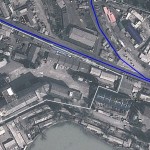Joong Ang Daily
12/19/2006
Despite United Nations sanctions aimed at preventing the North Korean government from buying luxury goods for its ruling class, government sources here said a North Korean trading company is still busy providing Kim Jong-il loyalists with their perquisites.
Tian Ming Trading Company, in the center of this former Portuguese enclave now with the same China-affiliated status as Hong Kong, says its main business line is carpets, and little more. Three office workers said there were no North Koreans at the company and that it has never traded with North Korea. The company’s president was out of town on business, they said.
But a source with close ties to the trading economy here said that Park Su-dok, a 53-year-old North Korean, is in Macao and obtained a visa as an employee of the company.
Another source said, “Tian Ming is a joint venture by North Korean and Hong Kong investors, and its main business is buying luxury goods from Hong Kong for shipment to North Korea.” He added that Tian Ming’s president, a Hong Kong resident, is buying luxury watches, gold products and expensive liquor at North Korea’s request, using a Hong Kong branch office for the purpose.
Other Macao government officials said 18 North Korean firms were registered in Macao as of late November, and 115 North Koreans carry Macao visas as employees. Twenty have become Macao citizens, they added.
Since Washington threatened to impose sanctions on Banco Delta Asia here, allegedly for helping North Korea launder cash from its alleged dubious business lines, some of those companies have shut down. Ten are still in limited operation, however, these government sources said.
Separately, a South Korean banker in Hong Kong told the Joong-Ang Ilbo that a North Korean businessman had visited him in an attempt to sell gold bars through one of the South Korean bank branches in Hong Kong.
The banker reportedly spurned the overture, although the transaction would not have violated any South Korean laws or regulations on North-South dealings. He said he simply did not want to get involved in such a deal given the international attention being paid to commercial dealings with North Korea. The banker suggested that the offer may have been a sign of the foreign currency problems North Korea is facing because of the UN sanctions and U.S. pressure on financial dealings with North Korea.
Banco Delta Asia has said that between 2003 and 2005, it had sold 9.2 tons of gold bars that it had purchased from the North, where gold production is estimated to be about 25 tons per year, mostly for export.
Wall Street Journal
12/18/2006
Gordon Fairlcough, p.A1
Close-Out Sale: North Korea’s Elite Shop While They Can
A North Korean businesswoman with heavy makeup and a bouffant hairdo studied herself in a mirror as she modeled fur-lined leather coats at a small store in [Dandong, China] this frigid northeast border city.
During a three-day excursion late last month, the woman also tried on shoes and looked at large-screen television sets before buying furniture and fresh fruit and heading home to Pyongyang, North Korea’s capital city.
The United Nations has called for a crackdown on luxury-goods shipments to North Korea as a way of pressuring the country to drop its atomic-weapons programs, which came under new fire after an October nuclear test.
If anything, the uncertainty about the flow of fancy goods appears to have whetted the appetites of some privileged North Koreans — whose impoverished country cultivates a Spartan socialist image.
In Dandong, North Koreans, many wearing lapel pins with a picture of North Korea’s founding dictator, Kim Il Sung, stroll through hotels and department stores. Signs are often written in Korean, with storekeepers advertising computers, karaoke machines and the erectile-dysfunction drugs Viagra and Cialis.
A few North Koreans have bought new cars at a Toyota dealership near the Dandong customs checkpoint, according to a salesman. One man paid about $50,000 in cash for a luxury sedan.
Gold is also gaining a following. Wang Xiaoju, a saleswoman at the jewelry counter at Xin Yi Bai Department Store, says North Korean women come in nearly every day, mostly to buy gold chains and other gold jewelry.
Women from the North also are frequent visitors to a riverfront spa, favoring milk baths and massages, according to staff there. A saleswoman at the Xin Yi Bai L’Oreal counter says North Koreans are regular customers. Among the big sellers: body sculpting cream for women who want to look thinner.
In the first 10 months of this year, Chinese exports of fur coats and fake furs to North Korea soared more than sevenfold from the year-earlier period, according to Chinese Customs figures. Exports of televisions and other consumer electronics were up 77%, while perfumes and cosmetics were up 10%.
Some North Koreans are even buying real estate in Dandong. One high-rise building, where three bedroom apartments go for nearly $100,000 each, has sweeping views of a decrepit North Korean village with crumbling cinder-block houses across the border. A North Korean buyer recently purchased one of the units with cash, according to the building’s sales agent.
“Life is quite comfortable” for senior party members, military officers and traders, who have prospered despite widespread shortages of food, fuel and medicine in North Korea, says Pak Yong Ho, a former high-ranking North Korean official who defected to South Korea two years ago.
North Korea’s Communist Party has long had overseas agents in Macau, Switzerland and elsewhere dedicated to maintaining supplies of luxuries for top military and government personnel, according to former North Korean officials. Their jobs, in the wake of the U.N. sanctions, could get much harder.
The U.N. so far has let individual countries decide which high-end products to block. Washington has barred U.S. companies from selling everything from iPods to Harley-Davidson motorcycles. But that move was largely symbolic, as there is very little direct trade between the U.S. and North Korea.
Japan, which has for decades been a source of luxuries for the North Korean ruling class, has banned exports of 24 fancy products from caviar and gems to watches and art.
But the key to whether the sanctions will work is in the hands of China, North Korea’s largest trading partner.
A steel-girder bridge here spans the Yalu River, connecting Dandong to the city of Sinuiju in North Korea. That has helped Dandong, whose name means “Red East,” become a popular shopping destination for North Koreans with money. It is unclear how much that will change because of the sanctions.
So far, China hasn’t disclosed what specific kinds of high-end exports — TVs or luxury automobiles, for instance — it will block. A Chinese foreign-ministry spokeswoman, Jiang Yu, has said the list “should not be allowed to impact normal trade transactions” between the socialist neighbors.
North Korean leader Kim Jong Il, whose own taste for expensive French cognac and other imported luxuries is well known, uses money and goods liberally in an effort to buy the loyalty of the elite, according to U.S. and South Korean officials. Some of these officials say that depriving the ruling class of its creature comforts could alienate them from Mr. Kim, long known as “Dear Leader.”
But many North Korea watchers and North Korean defectors doubt that the elite would revolt against Mr. Kim’s government, because their fates are so closely tied to his now. “Under this regime, the privileged have had a very good life,” says Kim Dok Hong, the second-highest North Korean official to defect. “If the regime collapses, the people they’ve mistreated will be looking for revenge.”
At the peak of the famine that killed more than a million North Koreans in the mid-1990s, Mr. Pak, the former government official, says his parents weren’t short of food. Their home had three refrigerators regularly replenished with imported provisions by the Communist Party. Mr. Pak uses a pseudonym to protect family members still in the North from government retribution.
“The elites have had more freedom to do their own business” since economic overhauls in 2002, says Yang Chang Seok, a senior official at South Korea’s Unification Ministry, which oversees relations with the North. “People have earned a lot of money from trading.”
These days in Pyongyang, members of the ruling class are ferried around in imported cars and live in well-appointed — and well-guarded — apartment complexes. Their children race around city parks on in-line skates and play American computer games.
Says Mr. Pak: “If you can afford to pay, there’s nothing you can’t get.”


